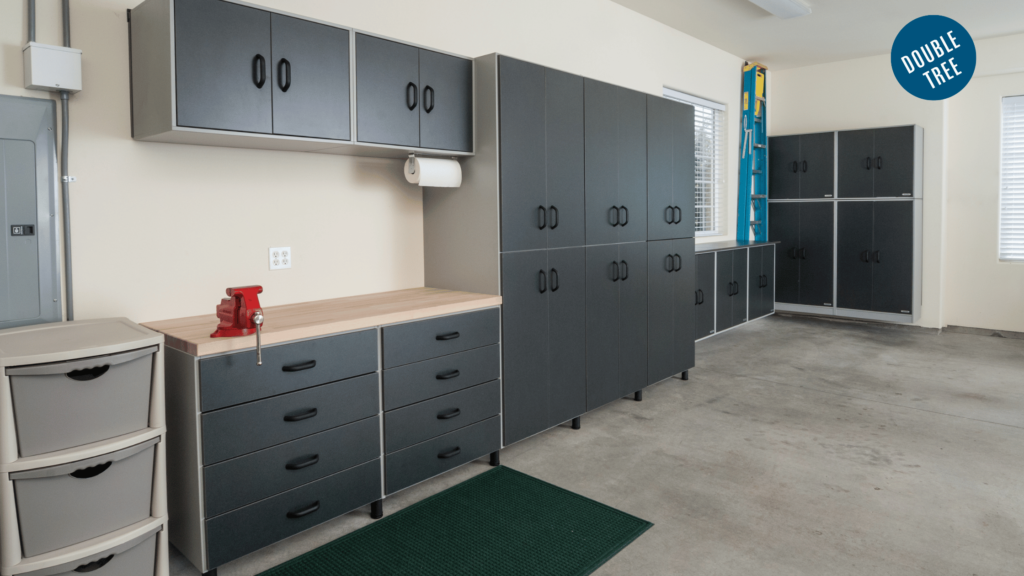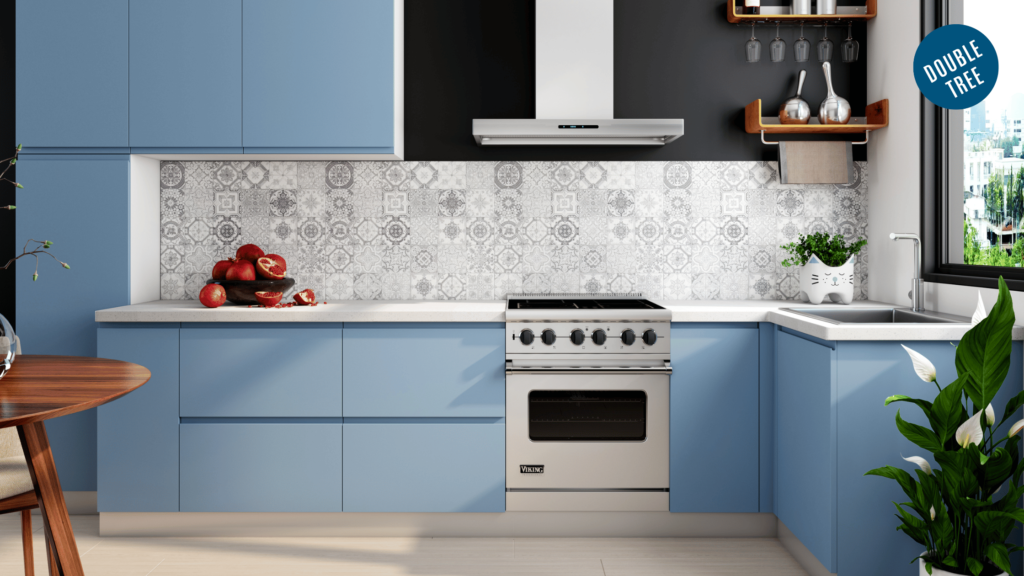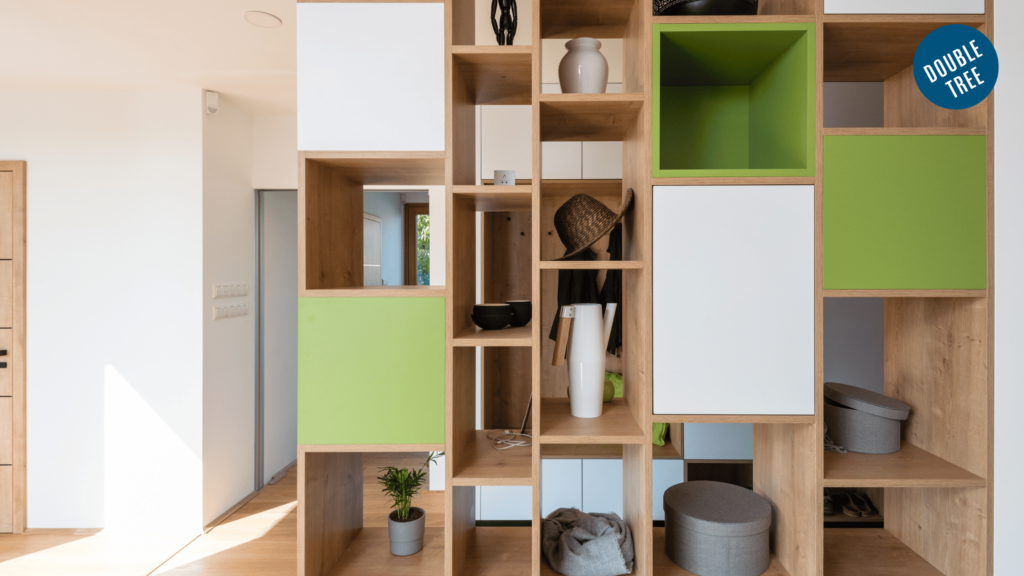Two options stand out in interior design and home furnishing for their distinct characteristics and benefits: modular furniture and custom-made furniture.
As homeowners and businesses seek to improve their spaces, understanding the differences between these two choices becomes crucial.
This guide will explore each’s unique aspects, helping you make an informed decision about your next furniture purchase.
The Furniture Dilemma
When it comes to furnishing a space, whether a cosy apartment, a spacious home, or a dynamic office, the choices can be overwhelming.
Among the myriad options available, modular furniture and custom-made furniture have gained significant popularity in recent years. But what sets them apart, and which one is right for you?
What is Modular Furniture?
Modular furniture refers to pieces designed with interchangeable components arranged in various configurations. This concept changed the furniture industry by offering flexibility and adaptability to changing needs and spaces.
Key characteristics of modular furniture include:
- Versatility and reconfigurability
- Standardized components
- Often mass-produced
- Easy to assemble and disassemble
What is Custom-Made Furniture?
As the name suggests, custom-made furniture is crafted specifically to meet individual requirements and preferences. It embodies personalized design and craftsmanship.
Custom-made furniture is characterized by:
- Unique, one-of-a-kind pieces
- Tailored to specific measurements and styles
- Often handcrafted
- Higher level of personalization
Custom-made furniture has a rich history dating back centuries, with skilled artisans creating bespoke pieces for royalty and the wealthy.
Today, it thrives as a premium option for those seeking unique, high-quality furnishings.

Key Differences Between Modular and Custom-Made Furniture
1. Design and Customization
Modular furniture offers limited design options within a predetermined range. Customization is achieved through the arrangement and combination of modules, resulting in standardized aesthetics with some room for personalization.
In contrast, custom-made furniture provides unlimited design possibilities. Each piece is tailored to exact specifications and preferences, resulting in unique aesthetics that reflect individual style.
2. Materials and Quality
Modular furniture often uses engineered wood or medium-density fiberboard (MDF). The quality can vary, but it is generally good for the price point. Standardized materials are used to ensure consistency across products.
On the other hand, custom-made furniture often uses high-quality, premium materials such as solid wood or fine metals. It boasts superior craftsmanship with attention to detail.
The material choice is based on client preferences and durability requirements.
3. Production Process
The production process for modular and custom-made furniture differs significantly:
Modular Furniture:
- Mass-produced in factories
- Automated processes ensure consistency
- Shorter production time due to standardization
Custom-Made Furniture:
- Handcrafted by skilled artisans
- Each piece receives individual attention
- Longer production time due to bespoke nature

4. Cost Factors
Due to mass production, modular furniture is generally more affordable. It’s a cost-effective option for furnishing large spaces, and prices vary based on brand and quality.
Due to personalized craftsmanship, custom-made furniture has a higher initial cost. It’s often seen as an investment piece with the potential to increase in value over time.
The price reflects the unique design, materials, and labour involved.
5. Lead Time and Availability
One of the main advantages of modular furniture is its quick availability. It’s often available for immediate purchase or with short delivery times. Pieces are easily replaced or added over time and are readily available through various retailers.
However, custom-made furniture requires longer lead times due to the design process and handcrafting. These one-of-a-kind pieces are not readily replaceable and are limited in availability through specialized craftsmen or high-end retailers.
6. Flexibility and Adaptability
Modular furniture shines in its adaptability to changing needs and spaces. It’s easy to reconfigure or expand, making it ideal for renters or those who move frequently.
Custom-made furniture is designed for a specific space or purpose. While it’s less adaptable to new environments, it’s perfect for homeowners with long-term plans who want furniture that fits their space perfectly.
7. Longevity and Durability
The longevity of modular furniture varies depending on its quality and materials. If damaged, individual components are easy to replace, but the overall piece may need replacement sooner than custom pieces.
Custom-made furniture is built to last with high-quality materials and craftsmanship. These pieces can often be passed down through generations and frequently come with warranties and after-sale service.

Advantages of Modular Furniture
Modular furniture offers several benefits:
- Versatility: Easily reconfigured to suit changing needs or spaces
- Cost-effectiveness: More affordable option for furnishing large areas
- Quick availability: Shorter lead times and readily available in stores
- Easy relocation: Ideal for those who move frequently
- Scalability: Can add or remove pieces as needed
Advantages of Custom-Made Furniture
Custom-made furniture provides its own set of advantages:
- Unique designs: Tailored to specific tastes and requirements
- High-quality craftsmanship: Superior materials and attention to detail
- Perfect fit: Ideal for unusual spaces or specific dimensional needs
- Increased value over time: Potential to become valuable heirloom pieces
- Personal satisfaction: Pride of owning a one-of-a-kind piece
Considerations When Choosing Between Modular and Custom-Made Furniture
When deciding between modular and custom-made furniture, consider the following factors:
- Budget constraints: Determine how much you’re willing to invest
- Timeline requirements: Consider how quickly you need the furniture
- Space limitations: Assess the dimensions and layout of your space
- Personal style and preferences: Reflect on your aesthetic tastes
- Long-term plans: Consider future moves or changes in lifestyle
- Functionality needs: Evaluate the primary purpose of the furniture

Popular Applications for Each Furniture Type
Modular furniture is often found in:
- Open-plan offices
- Studio apartments
- Children’s rooms
- Multi-functional living spaces
- Retail displays
Custom-made furniture is commonly used in:
- Luxury homes
- Period restorations
- Executive offices
- Unique architectural spaces
- High-end hospitality settings
Future Trends in Modular and Custom-Made Furniture
As the furniture industry evolves, we’re seeing exciting developments in both modular and custom-made segments:
- Technological advancements:
- 3D printing for custom components
- Smart furniture with integrated technology
- Virtual reality design tools for custom pieces
- Sustainability considerations:
- Eco-friendly materials in modular designs
- Upcycling and repurposing in custom creations
- Focus on longevity and timeless designs.
- Hybrid approaches:
- Customizable modular systems
- Mass customization techniques
- Modular bases with custom tops or finishes
Conclusion
The choice between modular and custom-made furniture ultimately depends on your unique needs, preferences, and circumstances. Modular furniture offers flexibility, affordability, and quick solutions, making it ideal for those who value adaptability and cost-effectiveness.
On the other hand, custom-made furniture provides unparalleled quality, personalization, and long-term value, perfect for those seeking unique pieces that reflect their style and meet specific requirements.
FAQs
Q: Is modular furniture always cheaper than custom-made furniture?
A: Generally, modular furniture is more affordable due to mass production. However, high-end modular pieces can be comparable in price to custom-made items.
Q: Can custom-made furniture be as durable as factory-made modular furniture?
A: Custom-made furniture is often more durable due to higher quality materials and craftsmanship. However, durability in modular furniture varies by brand and quality.
Q: How long does it typically take to get custom-made furniture?
A: Lead times for custom furniture can range from 6-12 weeks or more, depending on the complexity of the design and the artisan’s workload.
Q: Can modular furniture be as stylish as custom-made pieces?
A: Many modular furniture brands offer sleek, contemporary designs. While they may not match the unique nature of custom pieces, they can be very stylish and on-trend.
Q: Can modular and custom-made furniture be combined in the same space?
A: Absolutely! Many interior designers successfully mix modular and custom pieces to create balanced, functional, and visually interesting spaces.





